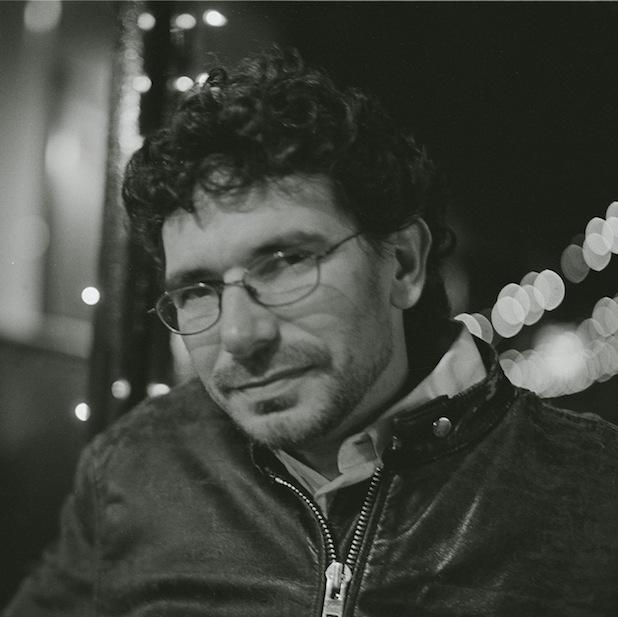Bourbon and Milk is an ongoing series that dives into the perplexing spaces parenting sometimes pushes us, and explores the unexpected ways writers may grow in them. If you’re interested in joining the conversation or contributing a Bourbon and Milk post, query Giuseppe Taurino at giuseppe@americanshortfiction.org.

When I was in graduate school, working on the stories that would become my first book, Short People, one of my professors pulled me aside for a private meeting in which he did me the great favor of warning me to rethink my project. “After you have children, you’re going to regret having written these stories,” he said. What he meant was that, once I experienced the fervent parental urge to protect the seed of my loins from any and all real or perceived danger, my worldview would change and along with it, my sense of fiction’s mission.
The stories I’d been writing strove to document a treacherous and cruel America in which parents can’t protect their children and kids aren’t always—or often—the cherubic innocents we’d like to imagine them to be. Rather, they’re small, sentient creatures, afflicted with a lack of knowledge about the world, easily confounded by the contradictory, sometimes nonexistent, moral guidance they receive. I’m not sure what my professor would have rather I had written—maybe stories in which hope can change people’s lives, stories in which good intentions are revered and there’s room for the possibility of undamaged survival—but I do know his concern for my hypothetical children was genuine. If only I would stop focusing on the negative, I might be able to guide those kids to the sunlight.
At the time, I felt affronted. The world was what it was. I might change within it, but it wasn’t going to become a nicer place simply because I wanted it to. Wasn’t the job of fiction to reveal the truth of human experience, regardless of how disconcerting that truth may be? And didn’t I have a responsibility to evoke that experience without muddying it up with sentimental, wishful thinking? I thought so. The alternative was a kind of soft middlebrow writing that coddled the reader with comforting lies.
Fourteen years later, I have a one-year-old son and I’ve been contemplating my professor’s warning.
In the months before my boy was born, I found myself writing with an all-consuming obsessiveness that I hadn’t experienced since my early twenties. When I wasn’t scrawling words onto the page, I was brooding over the work I’d done. I felt distilled and purified, like all the distractions and obligations that I’d acquired in my adult life had been boiled away. All that mattered was the writing and the writing was going well. Some nights I found myself still awake at five in the morning, half-lit on whiskey, hiding in the kitchen from my sleeping pregnant wife, listening to cowboy country songs I’d found on YouTube, utterly convinced that what I was working on would be the most important writing of my life.
I was grasping, of course, for the total freedom from responsibility that I knew would soon be subsumed by the needs of my child. But I was also doing something else, something less delusional: I was taking inventory, reminding myself who I was and what I valued, shoring up for the years to come when the pressure to conform would be compounded by the expectation our society places on parents to indoctrinate their children in the platitudinous American culture of striving and denial.
Now, one year into my new life as a father, I look with wonder on my child—and see his small chubby face staring in wonder back at me—and I think, Even me. Even someone as twisted and maimed as me is worthy of fierce, ferocious love. And the need to honestly describe my world grows that much more urgent. I’m writing with more confidence than ever before and my attitudes haven’t softened. If anything, I’ve grown bolder in my work. Whatever fear of illegitimacy I might have harbored has been transformed into strength and certainty by the act of parenting.
I recognize that when my son eventually reads my fiction, his sense of who his father is will change in confusing, possibly distressing ways. He’ll read depictions of drug addiction and violence, abuse of both the physical and psychological varieties, suicide, insanity, reckless doomed attempts to escape the trap of what he might have thought up until then to be the natural order of the universe. He’ll be confronted by the type of combative challenges to his well-ordered life that pulled the floor out from under mine, but instead of learning about these things from Genet and Beckett and Burroughs and Ginsburg like I did, he’ll see them sprouting from his own father’s mind. He’ll be forced to confront an uncomfortable paradox—that the man who loves him and looks out for his wellbeing, the man who makes funny faces just to see him laugh, the man willing to get down on hands and knees so his little boy can ride him like a donkey, saw the world as a perilous, unaccommodating place in which kindness was the exception to the rule and social institutions existed mostly to trick us into complacency.
Instead of fearing this moment, and—as my professor predicted—regretting the role I’ll have played in creating it, I look forward to the conversations it will spur. I’m not deluded enough to believe that I can protect my child by sheer force of will from a world that’s much chancier and more chaotic than my good intentions can combat. What I can do, hopefully, is arm him with the intellectual, emotional, and moral courage to walk through the mud without spattering so much of it in his eyes that it irrevocably blurs his vision.
Joshua Furst is the author of Short People, a story collection, and The Sabotage Cafe, a novel. He’s a contributing editor at The Jewish Daily Forward and a founding member of the writer’s collective Kristiania.